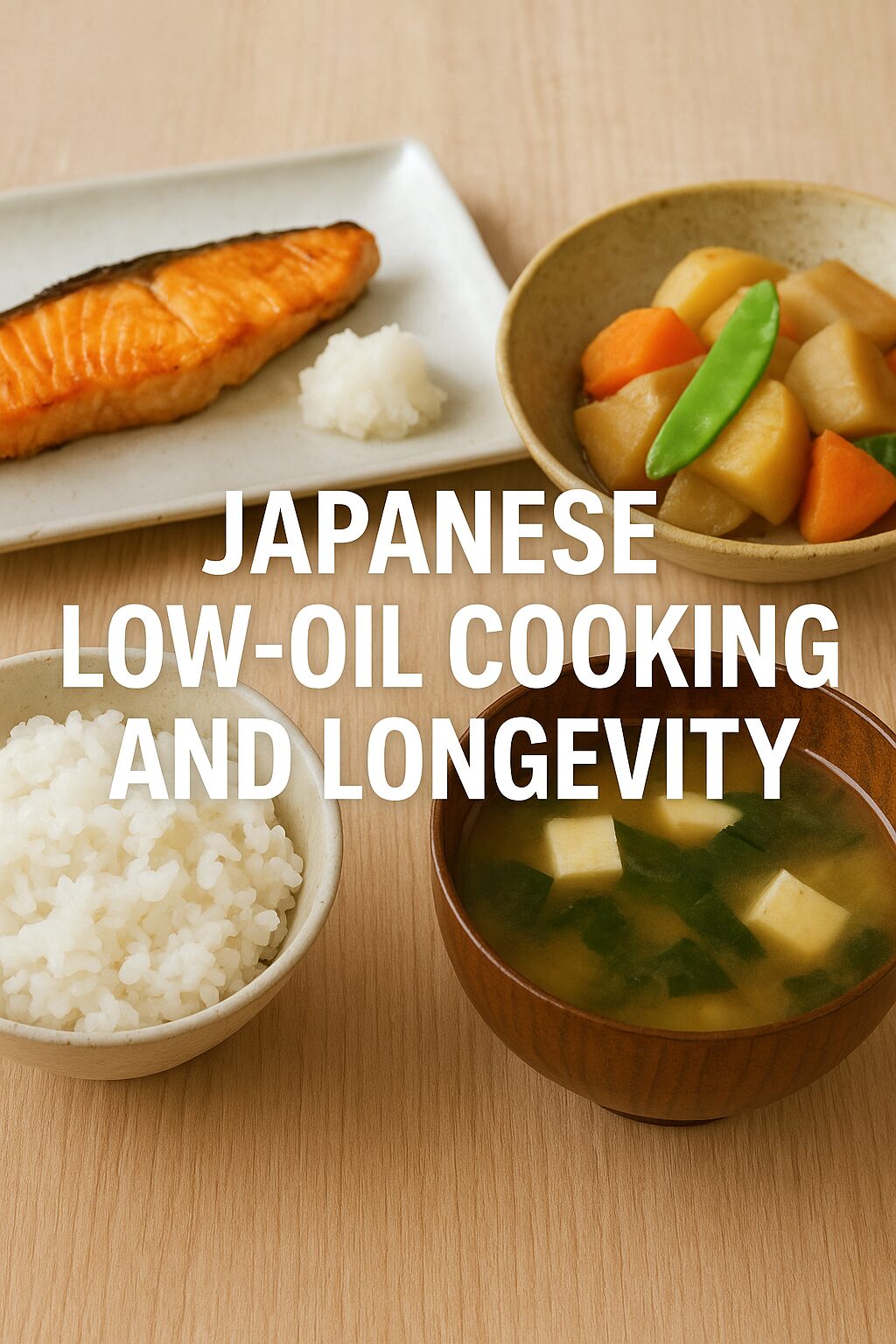Introduction
When people think of Japanese cuisine, sushi or ramen often comes to mind. But one of the hidden secrets behind Japan’s reputation for health and longevity lies in its low-oil cooking methods. By using light seasonings, steaming, simmering, and grilling instead of frying, the Japanese diet supports heart health, weight control, and graceful aging. Let’s explore how these traditions can inspire healthier living and contribute to a longer, more vibrant life.
The Japanese Way of Cooking with Less Oil
Simmering and Steaming
Traditional Japanese meals rely heavily on simmering vegetables, tofu, and fish in broths. Steaming is also common, preserving nutrients while reducing the need for oils and fats. These methods enhance natural flavors without relying on heavy sauces.
Grilling Instead of Frying
Grilled fish, a staple of the Japanese diet, provides lean protein with minimal added fat. By contrast, deep-frying is less common in everyday meals, reserved for occasional dishes like tempura. This reduces overall calorie and fat intake.
Dashi as a Flavor Base
Dashi, a broth made from kombu (kelp) and bonito flakes, creates rich umami flavors that replace the need for butter or cream. This foundation allows meals to remain light yet deeply satisfying.
Health Benefits of Low-Oil Cooking
Heart and Metabolic Health
By avoiding excessive oils, Japanese cooking helps maintain lower cholesterol levels and supports healthy blood circulation. This is one reason Japan consistently ranks among the nations with the lowest rates of heart disease.
Weight Management
Meals rich in vegetables, soy products, and seafood provide satiety without heavy calories. Low-oil preparation makes portion control easier and contributes to Japan’s low obesity rates.
Longevity and Vitality
Japan’s high life expectancy is often linked to diet. Low-oil cooking not only protects physical health but also supports energy balance, making daily activity sustainable well into older age.
Adapting Japanese Low-Oil Cooking at Home
Replace Frying with Steaming or Grilling
Try steaming vegetables instead of stir-frying, or grilling salmon with a touch of soy sauce and lemon.
Use Dashi Broth
Incorporate dashi into soups, stews, or even pasta sauces for a healthy umami boost without excess fat.
Choose Plant-Based Proteins
Tofu, miso, and edamame offer satisfying protein without heavy oils, making them great substitutes for fatty meats.
Natural Support with Juveriente®
Diet plays a vital role in health and longevity, but aging brings additional challenges such as reduced hormone production. Juveriente® offers natural supplements like Effisoy®, inspired by the Japanese diet, to support women’s health during menopause. It’s a modern complement to traditional wisdom, helping you maintain vitality as you age gracefully.
Conclusion
Japanese low-oil cooking is more than just a culinary choice—it’s a lifestyle that promotes long-term health, balance, and longevity. By incorporating these methods into your daily routine, you can enjoy delicious, nutrient-rich meals while protecting your heart, managing weight, and living with more vitality.







